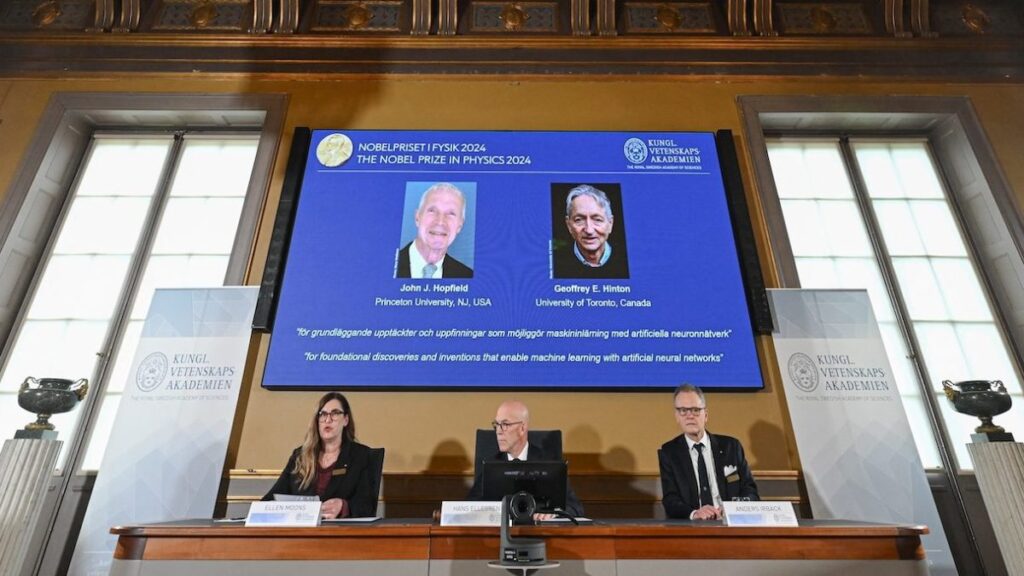Nobel Prize in Physics 2024 Awarded for Groundbreaking Work in AI
The Royal Swedish Academy of Sciences has made a remarkable announcement: the Nobel Prize in Physics for 2024 will be shared by two luminaries in the world of artificial intelligence, Geoff Hinton and John Hopfield. Their pioneering efforts in the development of artificial neural networks since the late 1970s and early 1980s have laid a robust foundation for today’s AI landscape.
Celebrating Landmark Discoveries
Hinton and Hopfield were honored for their “foundational discoveries and inventions that enable machine learning with artificial neural networks.” This achievement comes at a time when artificial intelligence is heralded as a pivotal force in what many call the fourth industrial revolution, with continual innovations shaping our world.
Earlier this year, the AI community witnessed further recognition of excellence when Demis Hassabis, co-founder and CEO of Google DeepMind, received a knighthood in the U.K. for his contributions to the field.
Geoff Hinton: The Godfather of Deep Learning
You might have heard of Geoff Hinton, often dubbed the “godfather of deep learning.” This title isn’t just a nickname but a testament to his extensive contributions to the AI field. After earning a PhD in artificial intelligence in 1978, Hinton played a crucial role in creating the backpropagation algorithm, a technique that revolutionized how neural networks learn. This development has significantly transformed the training of AI models, making them smarter and more efficient.
Hinton’s journey took a major turn when he joined Google in 2013, following their acquisition of his company, DNNresearch. Despite his esteemed position, he left Google last year due to concerns about AI’s role in disseminating misinformation. Today, he serves as a professor at the University of Toronto, where he continues to inspire the next generation of AI innovators.
John Hopfield: Pioneering Neural Networks
Meanwhile, John Hopfield, currently a professor at Princeton University, has also made significant strides in artificial intelligence. He introduced what we now know as the Hopfield network, proving how neural networks could emulate human memory by storing and retrieving patterns. His work elegantly bridged biology with computational systems, demonstrating how integrating principles from various fields can lead to groundbreaking innovations.
The Recognition and Impact
As laureates of the Nobel Prize, Hinton and Hopfield will receive not only a prestigious gold medal and diploma but also a cash reward of 11 million Swedish kronor (around $1 million), split between them. The recognition brings them global prestige and acknowledges their substantial impact on both physics and AI.
Ellen Moons, Chair of the Nobel Committee for Physics, emphasized the significance of the laureates’ contributions, stating, “The laureates’ work has already been of the greatest benefit. In physics, we use artificial neural networks in a vast range of areas, such as developing new materials with specific properties.”
Conclusion
The advancements spearheaded by Hinton and Hopfield showcase how interconnected our modern world is and how essential their work is in shaping the future of technology. As we continue to explore and innovate, the potential of AI remains limitless.
The AI Buzz Hub team is excited to see where these breakthroughs take us. Want to stay in the loop on all things AI? Subscribe to our newsletter or share this article with your fellow enthusiasts.




